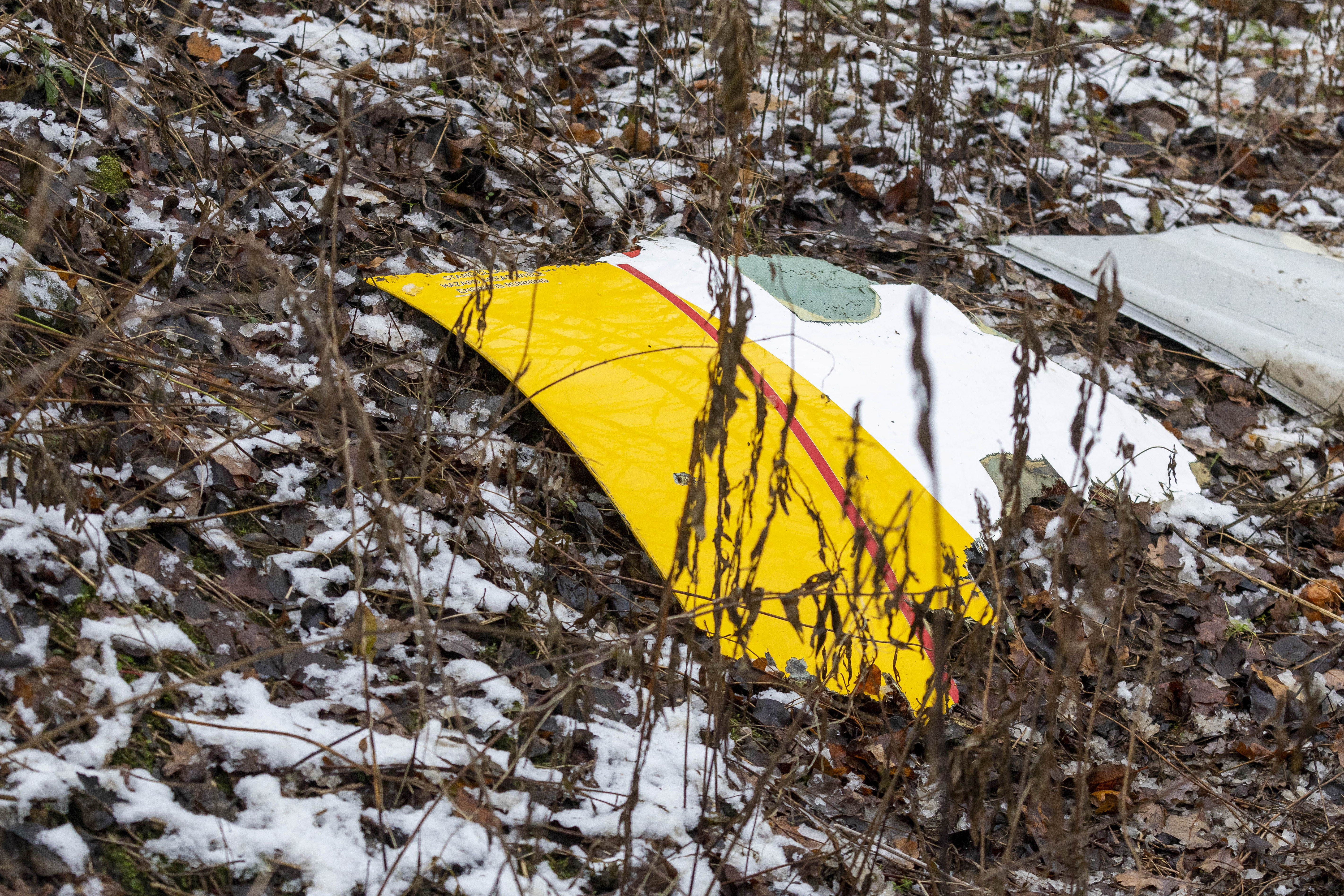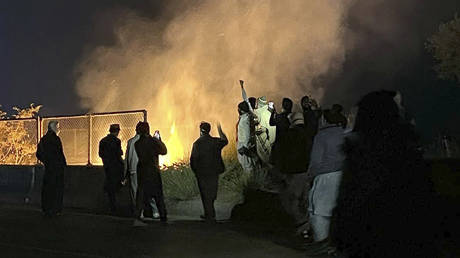ARTICLE AD BOX
A BIZARRE theme park with a giant statue of a classic storybook character as the main attraction was doomed to fail from the start.
Gulliver’s Kingdom theme park in Japan was built nearby to an infamous suicide forest and was open for just four years before being left completely abandoned.
 Medavia.co.uk
Medavia.co.uk Medavia.co.uk
Medavia.co.uk After being opened in 1997 the park ultimately lasted until just 2001 where it was closed due to poor attendance and dwindling profitsMedavia.co.uk
After being opened in 1997 the park ultimately lasted until just 2001 where it was closed due to poor attendance and dwindling profitsMedavia.co.ukClosing the doors in 2001, the wacky concept for an enjoyable day out for families was inspired by the iconic novel Gulliver’s Travels and the Japanese government who funded the project made sure to go all out with the attractions – even if it wasn’t the best thing to do.
The centrepiece of the park is a dominating statue of the main character Gulliver as he’s tied to the ground by ropes much like in the book.
However, coming in at a mammoth 147ft the statue was far too creepy to really appreciate but it did become a fun part of the park’s short identity.
Tourists would come and sit in the palm of the giant and get photos on top of him, making themselves look like part of the Lilliputian clan who captured Gulliver in the original story.
Martin Lyle, 44, visited the park when he was a photographer and snapped up some pictures of the place but was taken aback by the statue.
He said: “The giant Gulliver was unreal. Entering the grounds, I didn’t see him right away, then as I delved deeper into the park he suddenly loomed out of the landscape.
“It was such a momentous thing to stand in the presence of. It was the most amazing and surreal object I have ever seen.
“It felt so weird to lie in the palm of a giant man, while surrounded by the stunning scenery.”
Gulliver’s Kingdom was built on the footsteps of Mount Fuji and the legendary spot acts as a gorgeous backdrop for the theme park.
But the decision to put the park under Mount Fuji also meant it was close to two other more tragic spots.
The theme park was close to the Aokigahara forest, known as Japan‘s notorious suicide forest, which is regarded as the second largest of its kind in the world.
Japan's suicide forest

AOKIGAHARA is a sprawling forest sitting just northwest of Mount Fuji - where the foliage is so thick it has become known as the 'Sea Of Trees'.
But the woods are filled with densely twisted trees, and the lava from the mountain absorbs all sound, giving visitors an eerie sense of solitude.
This is why many believe hundreds of people have chosen it as the place to spend their final moments before taking their own lives.
Aokigahara has the second-highest rate of suicide in the world after the Golden Gate Bridge in San Francisco.
The rate of suicides have grown so big that Japanese authorities in the area have stopped publicly releasing figures.
Chillingly, Japanese authorities have been forced to erect signs at the start of some trails – urging suicidal visitors to think of their families, and contact a suicide prevention charity.
Some 105 bodies were found in the forest in 2003, while police recorded more than 200 attempted suicides there in 2010. Just 54 of them managed to take their own lives.
There tends to be a spike in people taking their own lives in March, at the end of Japan’s financial year.
Some bring tents into the forest and camp for days, debating their fate.
Japan has one of the highest suicide rates of any country in the world, and the 2008 global recession made matters much worse.
Historically, Aokigahara is also said to be haunted by yurei, or ghosts from Japanese mythology.
And is also situated close to the village of Kamikuishki and the former headquarters of Aum Shinrikyo.
A religious killer cult that caused the deaths of 13 people in the Tokyo sarin nerve gas attack of 1995.
The group was labelled as a terrorist organisation by several countries including the European Union.
This led to speculation that tourists would rather avoid the park because of the creepy feel the two nearby spots gave off.
The other huge issue with the theme park was the lack of amusements and rides.
Outside of the huge giant laying on the floor the park had just two other rides in a bobsled track and a luge course, neither of which were huge attractions for Japanese tourists.
The rest of the kingdom was surrounded by pastel coloured town houses around a moat lake all inspired by the 18th century novel as other smaller statues from the books are also littered around.
Because of the lack of customers piling through the front gates of Gulliver’s Kingdom it was forced to close down and was left to rot.
Since 2004, the park was left untouched by investors and only seen by locals looking to explore the wacky spot one more time.
The Gulliver statue was left covered in graffiti and the park signs decayed overtime.
Before it was eventually demolished in 2007 and became just a distant memory from those few who visited.
Mr Lyle went on to say: “I can see why the park did not last very long. I would not want to go to a fun theme park next to those sinister places.
“Whichever way you look at it, the park had a strange concept. Why would you base a theme park on an 18th Century English novel?”
According to reports in Japan, the park was heavily financially backed by the Niigata Chuo Bank who lent over $350million to the theme park.
But the bank collapsed after being unable to repay a number of pricey non-performing loans and was made to get rid of all of its assets that had become worthless, including Gulliver’s Kingdom.
Gulliver's Travels

BACK in 1726, Jonathan Swift published the iconic novel Gulliver's Travels.
So the book uses far flung and fictional lands – including Japan – and their strange customs to attack British society.
In the first of four books, Gulliver travels to the land of the Lilliputians – miniature people who take Gulliver in as a pet and use him as a war weapon against their rivals.
In the end Gulliver is sent home from the island after disrespecting the royal family by putting out a fire by urinating on it.
The next book saw Gulliver travel to the kingdom of the Brobdingnag giants who live in a utopian socialist-style society where everything is shared equally between everyone.
Gulliver tries to convince them to be like other societies by talking to the Brobdingnag King but he only gets upset by the use of cannons, guns and violence.
The king can’t understand human desire for horror and cruelness to one another and Gulliver fails to defend any of the practices and goes home.
The third and fourth books contain the strangest of Gulliver’s adventures, first to a land of floating islands filled with the elites of society literally looking down on the poor.
Gulliver then visits Balnibarb – a land full of immortal men who age normally but can never die and the Glubbdubdrib gang, home to a magician that helps Gulliver discuss history with the ghosts of old political figures.
Then Gulliver goes to Japan, where the theme park is based, and is taken to the land of the Houyhnhnms, a kingdom where horses are in charge and human-like creatures called Yahoos are ruled over by them.
The book series ends with Gulliver going home to his wife after realising that humans are doomed because of their need to rule over others and choice for violence over peace.
The book first seemed like an interesting tale of two worlds colliding but people quickly started to pick up on the satirical elements of the book.
Many felt Swift critiqued the ruling class of his time through the novel by classing them as the giant and the working people overthrowing this power and taking over.
The story was then made into a Hollywood film starring Jack Black in 2010.
 Medavia.co.uk
Medavia.co.uk Medavia.co.uk
Medavia.co.uk.png)
 9 months ago
3
9 months ago
3








 English (US)
English (US)